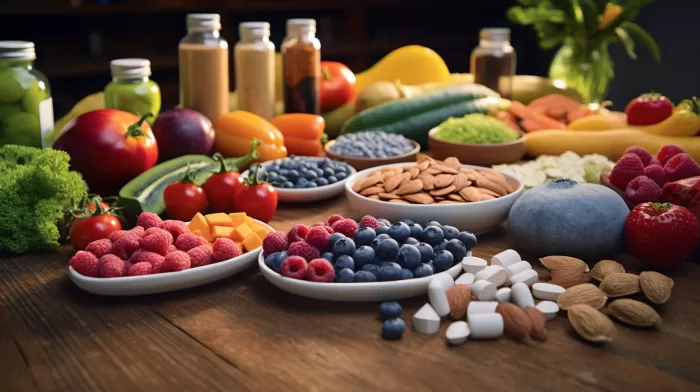As a vegetarian, you can lead a healthy and active lifestyle, participating in even the most strenuous of exercises. The key to maintaining optimal health as a vegetarian is ensuring your diet provides the essential nutrients your body needs. Nutriconnect, an Australian dietary consultant company, found that many vegetarians, particularly active athletes, might not consume enough vitamin B12, vitamin D, and calcium. Generally, these nutrients are found in animal products, which are absent from a vegetarian diet.
The risks of deficiency
Researcher Dilip Ghosh points out that anemic iron deficiency may be prevalent amongst women following a vegetarian diet. Vegetarian athletes may experience compromised muscle performance due to a lack of creatine in their daily meals.
Athletes who follow a vegetarian lifestyle have persisted for centuries– even Roman gladiators appear to have adhered to a plant-based diet. Today, elite athletes such as marathon runners Bart Yasso and Scott Jurek, and professional triathlete Brendan Brazier, all maintain successful athletic careers as vegetarians.
Achieving a healthy balance
The primary focus of a vegetarian athlete is to consume a desirable macronutrient distribution, according to Ghosh. This distribution should consist of carbohydrates (45-65 percent), fat (20-35 percent), and protein (10-35 percent). Ghosh explains, “Vegetarian athletes can meet their dietary needs from predominantly or exclusively plant-based sources when a variety of these foods are consumed daily, and energy intake is adequate.”
Essential nutrients and non-meat sources
As a vegetarian, it is essential to find non-meat sources of the following nutrients:
1. Iron
Iron is crucial for blood health, and non-heme iron is found in plant-based sources such as lentils, tofu, chickpeas, and fortified cereals. However, non-heme iron is not as easily absorbed by the body as heme iron from animal products. To improve non-heme iron absorption, consume iron-rich plant foods alongside sources of vitamin C, such as oranges, strawberries, and tomatoes, as well as leafy green vegetables and peppers.
2. Creatine
Creatine is vital for maintaining muscle strength, and although your body can produce it, vegetarians tend to have lower amounts in their muscles. You can supplement a vegetarian diet with synthetic creatine supplements from reliable brands.
3. Zinc
Maintaining a healthy immune system and metabolism requires zinc. Vegetarians may need up to 50 percent more zinc in their diet than non-vegetarians, as plant-based sources are more difficult for the body to absorb. Rich plant sources of zinc include whole grains, tofu, legumes, nuts, and seeds.
4. Vitamin B12
Vital for blood and brain health, vitamin B12 is primarily found in animal products. Some reliable plant sources include fortified cereals, meat substitutes, and plant-based milk. Vegetarians may also consider taking a B12 supplement.
5. Vitamin D
This essential nutrient aids in calcium absorption, which is crucial for maintaining bone health. Vitamin D exposure can be obtained through direct sun exposure, but depending on your geographic location and lifestyle, this may not be feasible. Plant-based milk and breakfast cereals are usually fortified with vitamin D, and supplements are also available.
6. Calcium
Calcium intake is vital for bone health, and although dairy products are a good source, vegetarians can turn to leafy green vegetables or fortified plant-based milk products such as almond milk, soy milk, and oat milk. Tofu, figs, and chia seeds are also good sources of calcium.
Supplements may be necessary
To ensure optimum health and athletic performance as a vegetarian, you must incorporate a variety of plant-based foods and adapt your diet to include the necessary non-meat sources of essential nutrients. If you find it difficult to consume an adequate amount of specific nutrients, consider incorporating dietary supplements into your meal plan.
It is crucial for vegetarians, particularly athletes, to closely monitor their nutrient intake and consistently strive to maintain a balanced diet centered on nutrient-dense plant-based foods to ensure optimum health and performance.



